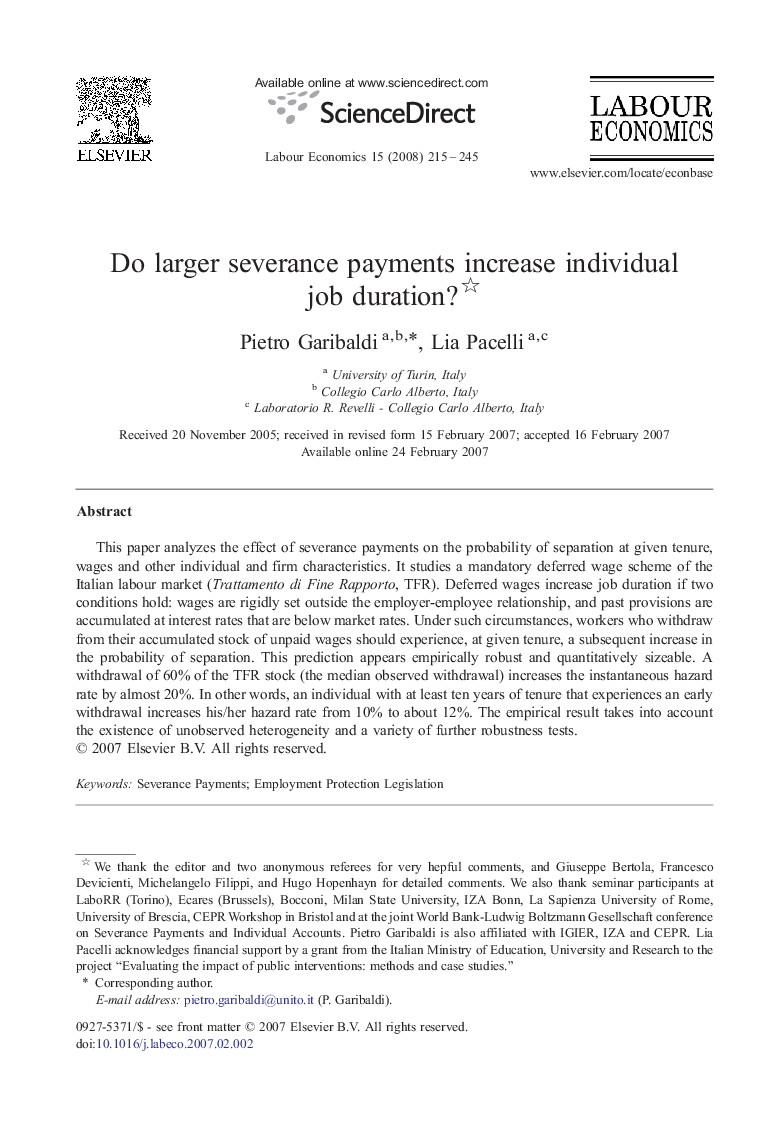| Article ID | Journal | Published Year | Pages | File Type |
|---|---|---|---|---|
| 971961 | Labour Economics | 2008 | 31 Pages |
Abstract
This paper analyzes the effect of severance payments on the probability of separation at given tenure, wages and other individual and firm characteristics. It studies a mandatory deferred wage scheme of the Italian labour market (Trattamento di Fine Rapporto, TFR). Deferred wages increase job duration if two conditions hold: wages are rigidly set outside the employer-employee relationship, and past provisions are accumulated at interest rates that are below market rates. Under such circumstances, workers who withdraw from their accumulated stock of unpaid wages should experience, at given tenure, a subsequent increase in the probability of separation. This prediction appears empirically robust and quantitatively sizeable. A withdrawal of 60% of the TFR stock (the median observed withdrawal) increases the instantaneous hazard rate by almost 20%. In other words, an individual with at least ten years of tenure that experiences an early withdrawal increases his/her hazard rate from 10% to about 12%. The empirical result takes into account the existence of unobserved heterogeneity and a variety of further robustness tests.
Related Topics
Social Sciences and Humanities
Economics, Econometrics and Finance
Economics and Econometrics
Authors
Pietro Garibaldi, Lia Pacelli,
